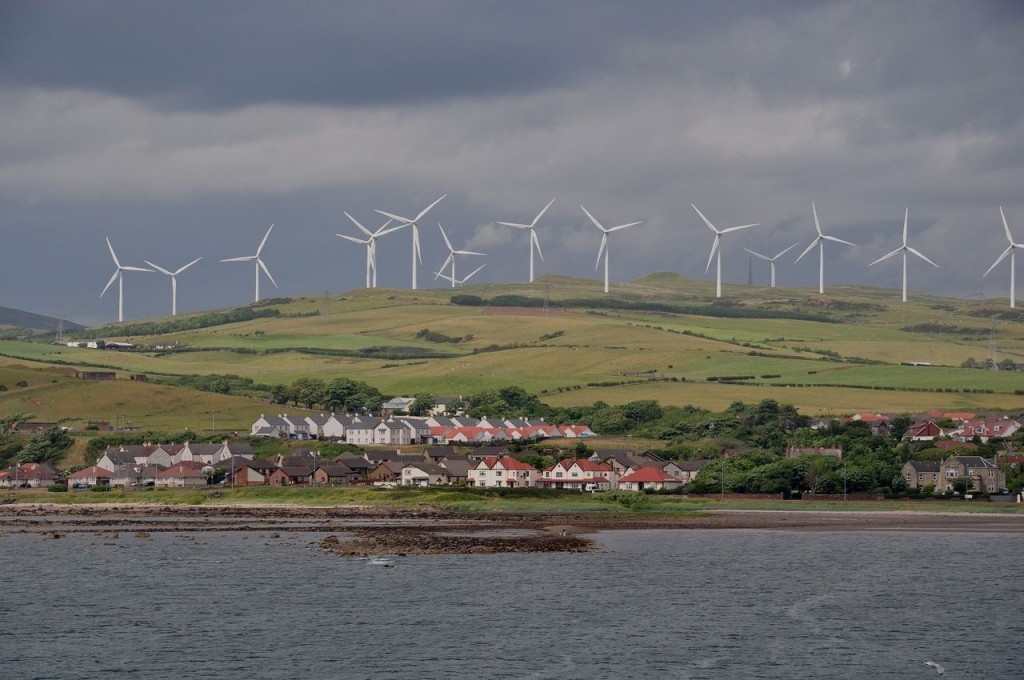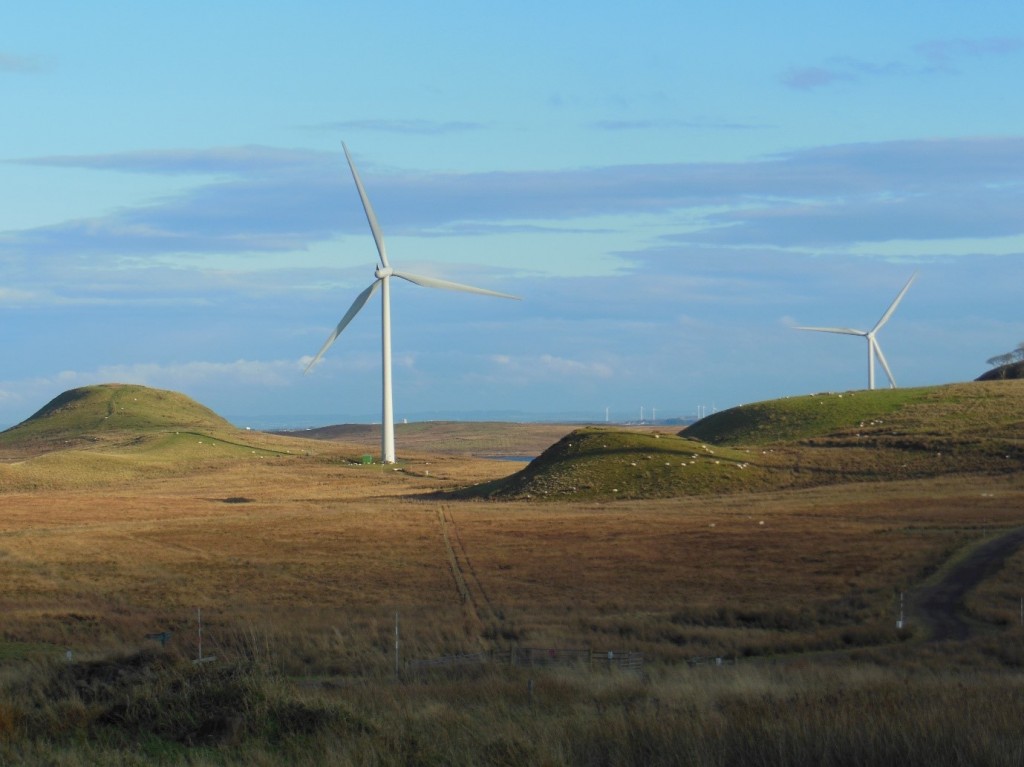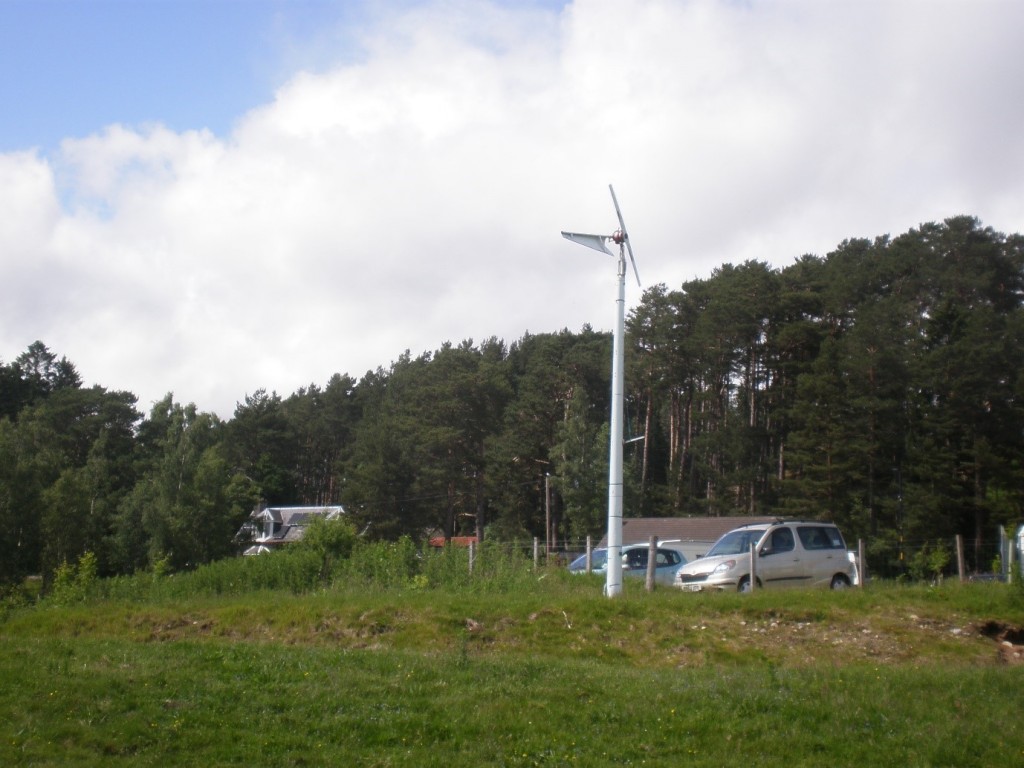Helene Marie Green, “The ‘March of the Turbines’ and the Destruction vs. Creation of Scottish Landscapes”
<<< back to Paysage/Landscape 2014
Helen is a researcher of landscape and heritage based in Archaeology at the University of Glasgow, whose current doctoral research is concerned with relationships between wind energy, cultural heritage, values and perceptual experience. Visit her academic homepage
This paper considered aspects of perception, using expression within media discourse relating to the growth of wind energy in Scotland in recent years. It took as a starting point that metaphor, which is a means both of expressing and of understanding one thing in terms of another, can therefore offer insight into perceptions, and that engagement with landscape is closely intertwined with values.
Recently Scotland’s landscapes have been noticeably altered by the erection of wind turbines whose height, and tendency to be sited at high altitude, renders them highly visible in the landscape. They are frequently in movement and they can stand out bright white against grey skies, grey against white, or fade into cloud – sometimes all in the same view. Their size and shape can confuse perceptions of scale and, some would say, they dominate.
Windfarm, Ardrossan.
Photograph: Vincent van Zeijst (licensed under Creative Commons)
Wind turbines have even been explicitly characterised by objectors as an invading army, marching on Scotland, destroying our revered and iconic places and sense of self in its wake. An image of Stirling Castle overlooked by turbines was published in one newspaper, comparing the windfarm to armies that have besieged the castle throughout the years. Other language used has included ‘desecration’, ‘destruction’, ‘domination’, ‘blight’ or ‘blot’ on/of the landscape – reflecting a sense of destructive threat that is felt, for example, by anti-wind campaigners, local and national: rapid proliferation is viewed as hostile colonisation and occupation.
Part of this dynamic is the issue of power. This transformation of Scottish landscapes appears to be underlain by political, social and economic powers beyond people’s influence, so they retaliate. Yet to others, such as green campaigners or the energy industry, who sometimes view landscape more in terms of global sensibilities, this could be an army of salvation: soldiers fighting the good fight against climate change; or perhaps as monuments to technological advancement and economic development.
Whitelee Moor, where turbines and manifold signs of diverse, long-term human interaction coexist within the landscape.
Photograph: author
1930s wind turbine, Highland Folk Museum, Kingussie.
Photograph: Becca Younger
Perception
Despite the fact that landscapes are made up of complex processes and dynamic relationships between land, people, plants, animals, water and sky, etc., and therefore change constantly, somehow rapid landscape change disturbs us because we perceive them as relatively stable. This perceived stability enables them to be symbolic as well as significant, and vulnerable to threat.
Many people object to the ‘industrialisation’ of the Scottish countryside, because it is valued as a source of retreat from modernity: it can offer an alternative to the intensity and complexity of urban life. New forms of energy generation have visibly changed the landscapes of Scotland, but this is not particularly new – they have been shaped by human exploitation for thousands of years.
The cultural conflict over wind energy highlights that perceptual experience, which is personal but also infused with complex intersecting social values, rather than rationality or so-called ‘objectivity’, helps shape the way we relate to landscape.


